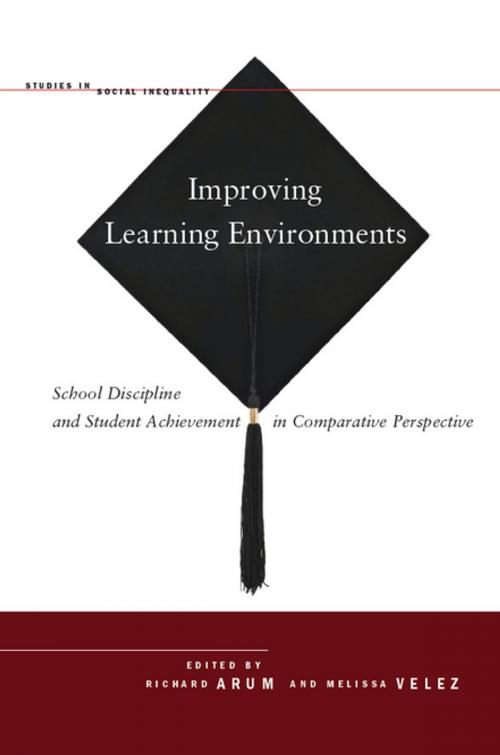Improving Learning Environments
School Discipline and Student Achievement in Comparative Perspective
Nonfiction, Reference & Language, Education & Teaching| Author: | ISBN: | 9780804781688 | |
| Publisher: | Stanford University Press | Publication: | June 13, 2012 |
| Imprint: | Stanford University Press | Language: | English |
| Author: | |
| ISBN: | 9780804781688 |
| Publisher: | Stanford University Press |
| Publication: | June 13, 2012 |
| Imprint: | Stanford University Press |
| Language: | English |
Improving Learning Environments provides the first systematic comparative cross-national study of school disciplinary climates. In this volume, leading international social science researchers explore nine national case studies to identify the institutional determinants of variation in school discipline, the possible links between school environments and student achievement, as well as the implications of these findings for understanding social inequality. As the book demonstrates, a better understanding of school discipline is essential to the formation of effective educational policies. Ultimately, to improve a school's ability to contribute to youth socialization and student internalization of positive social norms and values, any changes in school discipline must not only be responsive to behavior problems but should also work to enhance the legitimacy and moral authority of school actors.
Improving Learning Environments provides the first systematic comparative cross-national study of school disciplinary climates. In this volume, leading international social science researchers explore nine national case studies to identify the institutional determinants of variation in school discipline, the possible links between school environments and student achievement, as well as the implications of these findings for understanding social inequality. As the book demonstrates, a better understanding of school discipline is essential to the formation of effective educational policies. Ultimately, to improve a school's ability to contribute to youth socialization and student internalization of positive social norms and values, any changes in school discipline must not only be responsive to behavior problems but should also work to enhance the legitimacy and moral authority of school actors.















